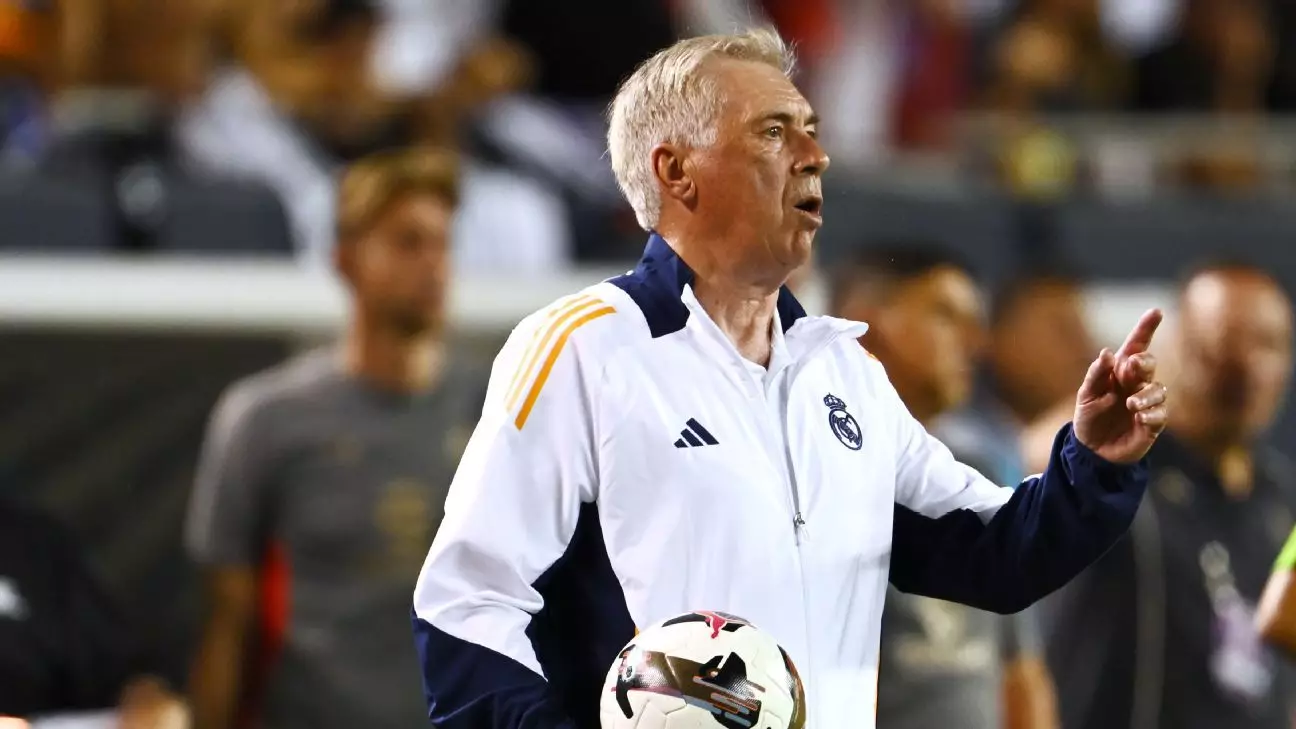In the current landscape of football, the shift towards an increasingly congested schedule has sparked growing concerns among players, coaches, and fans alike. With the rollout of an expanded Champions League and an updated Club World Cup format, athletes are faced with the daunting prospect of potentially playing up to 85 matches in one season. This overloading of fixtures is placing immense physical and mental stress on the players, leading to considerations of not just performance, but also their health and well-being. Recent comments by Real Madrid’s head coach Carlo Ancelotti have ignited a dialogue about the necessity of reducing the number of matches played and the implications on player salaries.
Ancelotti’s willingness to explore the idea of pay cuts in exchange for a lighter match schedule reflects a commitment to prioritize player welfare. He suggested that in pursuit of healthier playing conditions and reduced injury risks, players may be amenable to salary reductions. This highlights a pivotal moment in football whereby discussions about player remuneration can intersect with the fundamental need for their well-being. Top-tier players have increasingly voiced their frustrations regarding workload, stating that the grueling schedule exacerbates physical strain, thereby undermining both their performance and longevity in the sport.
The predicament is underlined by Manchester City’s Rodri, who recently hinted at the possibility of strike action, expressing the collective discontent swirling among players. Such strong sentiments indicate that athletes are reaching a breaking point where they may feel forced to advocate for change in more dramatic ways. Yet Ancelotti’s remarks suggest that immediate resolutions to the season’s current format may not be achievable. The ongoing structure appears to be rigid, despite growing opposition from the very players it impacts most significantly.
In the face of this relentless schedule, Ancelotti remains focused on his team’s performance, particularly as Real Madrid gears up for their La Liga clash against Espanyol. Following a convincing 3-1 victory against Stuttgart in their Champions League opener, Ancelotti voiced optimism regarding their style of play. He acknowledged the beauty of their football while simultaneously recognizing the need for improvement, emphasizing the balance between winning and aesthetics.
Ancelotti’s tactical flexibility will be critical as he contemplates adjustments to the team’s formation. While the Italian manager expressed hesitance regarding a switch to a four-man midfield, he firmly believes that achieving balance is a collective responsibility. Here, Ancelotti implies that successful gameplay transcends mere formation and relies on teamwork, discipline, and the ability to adapt. It underscores the notion that players must be strategically savvy and willing to adjust their roles to ensure cohesive functionality on the pitch.
Young Talent and Future Prospects
Amidst talk of team dynamics, Ancelotti has been keen to highlight the rising stars within the squad, particularly praising young Brazilian forward Endrick, who has made quick strides since his transfer from Palmeiras. The coach’s eagerness to integrate Endrick into the starting lineup reflects both confidence in the player’s potential and a vision for the future of the club. As football continually evolves, young talents like Endrick stand at the forefront of this transition, signifying a shift towards embracing exuberance and skill that resonates with the club’s storied legacy.
Additionally, Ancelotti has laid out intentions for the return of midfield linchpin Eduardo Camavinga, who has been sidelined due to injury. The anticipation surrounding Camavinga’s comeback illustrates the coach’s understanding of the delicate balance between managing player health and harnessing their skills for team success. His insights suggest that the forthcoming weeks will be pivotal in establishing the team’s momentum as they navigate the complexities of their schedule.
Conclusion: A Call for Reflection
As the football community grapples with the ramifications of an overloaded schedule, it becomes increasingly evident that a balance must be struck between the demands of modern football and the physical limits of its players. Ancelotti’s reflections prompt a wider conversation about how the sport can prioritize athlete well-being without sacrificing the integrity of competition. As players and coaches call for a reconsideration of the current frameworks, there is hope that football can evolve in a manner that supports its most essential assets—the players—allowing them to thrive in both performance and health.

